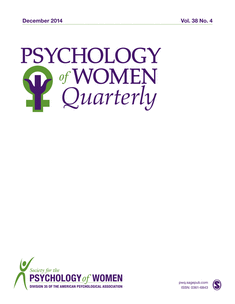How do men and women respond to gender bias in STEM?

Research has revealed that gender biases limit the opportunities for women within science, technology, engineering, and mathematics (STEM) disciplines. But just how prevalent are these biases and how are they perceived differently by men and women? A new study out today in Psychology of Women Quarterly examined a well-known space for candid sharing of thoughts - the comments sections of online articles - and found that men are much less likely to agree with scientific evidence of gender bias in STEM than women.
Researchers Corinne Moss-Racusin, Aneta Molenda, and Charlotte Cramer analyzed 831 public comments made on three online news articles (from the New York Times, Discover Magazine Blog, and the IFL Science blog) that reported experimental evidence of gender bias within some areas of scientists. They found that men were more likely to respond negatively to these articles than women. Specifically:
- 9.5% of the comments argued that sexism does not exist; 68% of these commenters were men.
- 67.4% of the comments agreed that gender bias exists; of these 29% were men
- 22% of all of the comments justified the existence of gender bias.
- Of these comments, between 79% and 88% were made by men.
- 59.8% justified gender bias using biological explanations, 29.6% used non-biological explanations, and 10.6% justified gender bias stating that women perpetrate it by discriminating against other women.
- 7.6% of the comments argued that sexism targets men more than women; 65% of these commenters were men.
- 100% of the comments expressing gratitude for the study were made by women.
- Only .5% of the comments mentioned that their minds were changed about gender bias after reading the article; of these 67% were made by men.
- 11.2% of the comments expressed a call for social change, of these 46% were made by men.
The researchers also studied any sexist remarks made by men and women in the comments:
- 7% of all of the comments included sexist remarks; of these, 76.8% were against women and 23.2% were against men.
- Of the sexist remarks made against women, 95% were made by men.
- Of the sexist remarks made against men, 50% were made by men.
The authors wrote, "It is critical to understand how people react to evidence of bias in order to implement successful interventions designed to decrease it, particularly given mounting evidence that non-stigmatized group members (i.e., White men) may respond differently than other individuals."
Journal information: Psychology of Women Quarterly
Provided by SAGE Publications

















